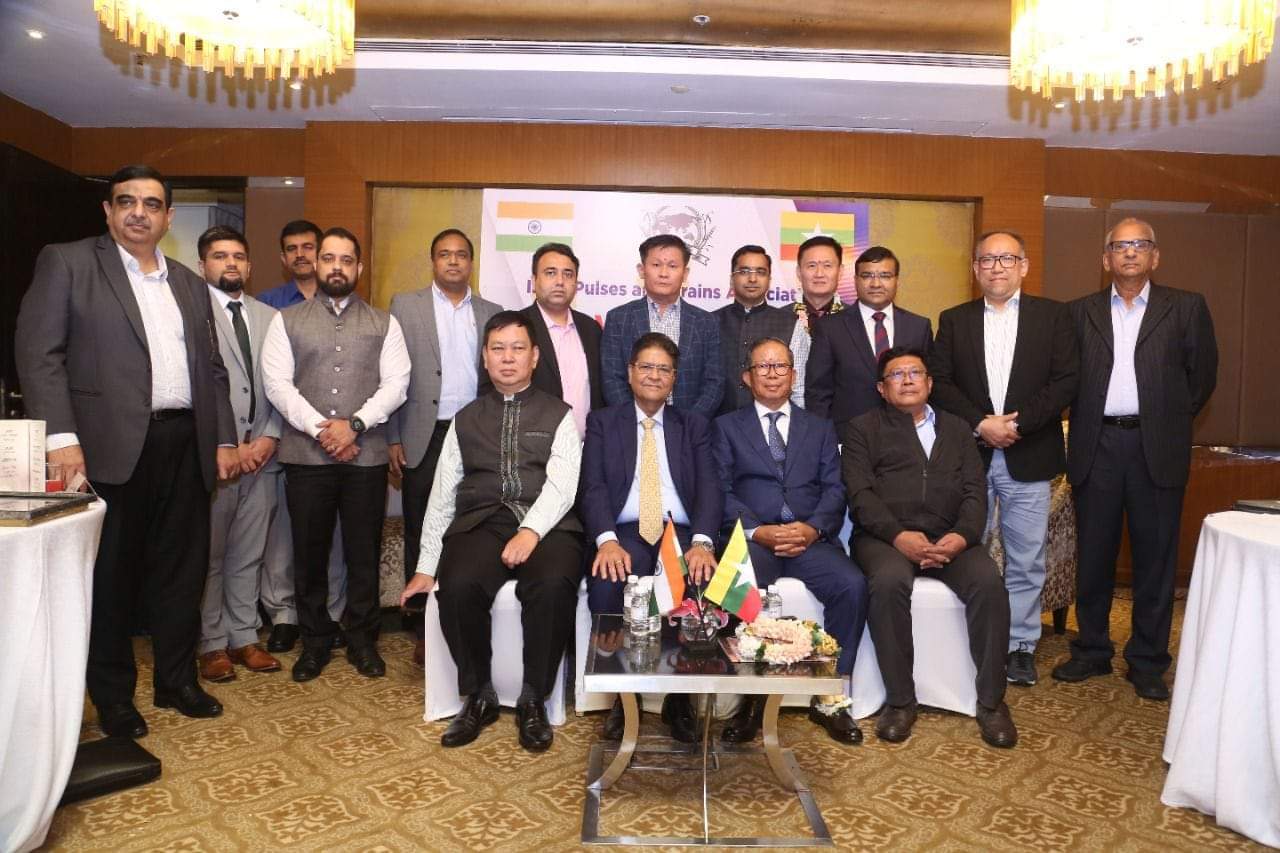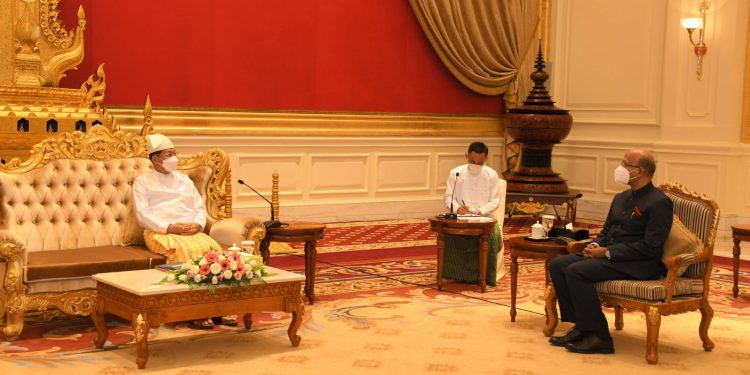When the world talks about the isolated Myanmar military regime, the discussion of its few allies tends to focus on Russia and China’s engagement with the junta and support for it on the UN Security Council (UNSC). One country that has been strangely absent from this conversation, however, is India.
The world’s largest democracy, Myanmar’s huge neighbor to the northwest has tried its best not to antagonize the junta, which has killed more than 2,000 people for rejecting military rule.
During the just-ended UN General Assembly, more distant regional neighbors like Malaysia and East Timor expressed sadness at the Security Council’s failure to take serious action on Myanmar, and warned that the conflict in the country was impacting the security and stability of its neighbors. Contrast this with the meek comments from the representative of India—a non-permanent member of the current UNSC and Myanmar’s neighbor—who said simply: “We supplied 10,000 metric tons of food aid and vaccine shipments to Myanmar.”
Since the coup, India has maintained a relationship with the regime, one that continues to grow in the diplomatic, military, economic and electoral spheres.
Last week, a delegation led by regime Agriculture, Livestock and Irrigation Minister Tin Htut Oo was in India to visit the Indian Agricultural Research Institute (ICAR), which is working in cooperation with the Indian state-owned National Seed Corporation (NSC). Myanmar state-run media said the purpose of the visit was to acquire seeds of a variety of beans and pulses, including green gram (mung beans), which regime leader Min Aung Hlaing seeks to export as a means of pulling Myanmar’s economy out of its nosedive.
One of the members of the delegation was economist Dr. Zaw Oo, who advised the junta on the formation of an economic think tank with the aim of helping the Myanmar military rule the country. He recently called for improved civil-military relations, saying this was needed to end the chaos the country has been facing on all fronts since the coup last year.

The delegation also met representatives of the India Pulses and Grains Association (IPGA) and the Overseas Agro Traders Association (OATA) to discuss the addition of green gram to Myanmar’s bean and pulse export list, and to invite more Indian investment in Myanmar. They also met with other private companies to buy seeds for cotton and sunflower, another crop Min Aung Hlaing is pinning his hopes on to serve as a substitute for the country’s edible oil imports.
The warm relationship between India and the current Myanmar regime dates back to its earliest days in 2021. While the regime was being internationally condemned for its coup in February of that year, India was careful not to make any direct reference to the military coup or to condemn it in its statements.
While the majority of international military attaches boycotted the regime’s Armed Forces Day parade the following month—amid bloody junta crackdowns on peaceful protests against military rule—India was among a handful of countries, including Russia and China, to join the event.
Then in November, India invited regime Admiral Moe Aung to the Goa Maritime Conclave 2021 hosted by the Indian Navy.
India military’s ties with its Myanmar counterpart predate the coup, however.
It trains a number of Myanmar soldiers at its facilities and Min Aung Hlaing has been a frequent visitor to New Delhi, forging ties with his counterparts there. In 2020, the Myanmar military acquired its first submarine from India.
Furthermore, India is currently involved in developing the nearly US$400-million Kaladan port and highway project in the west of Myanmar, as well as contributing around $250 million to another road project to connect India’s landlocked northeastern states with Thailand via Myanmar.
Diplomatically, while other countries like Britain and Australia have a bumpy relationship with the Myanmar junta, as evidenced by a downgrading of their diplomatic presence, Indian Ambassador Vinay Kumar presented his credentials to Min Aung Hlaing in April this year.
Then, a few weeks later, the ambassador rushed to hold talks with regime-appointed Union Election Commission (UEC) chairman Thein Soe to ask about electoral processes and discuss further cooperation with the UEC on the upcoming election. China also met with UEC officials in the same month to ask about the agency’s ongoing plans, including inspections of political parties ahead of the planned election.
The junta is planning to hold a general election next year that many at home have rejected, seeing it as a sham intended to cement the regime’s grip on power.
A UN rights envoy warned that the vote would be a fraud, while the US said there is no chance it could be free and fair, adding that it was likely just an attempt to manipulate the region and the international community.

















